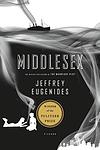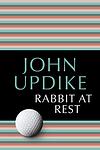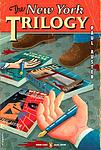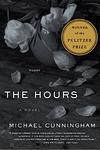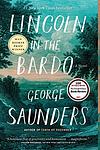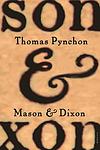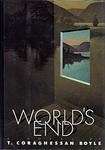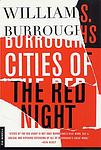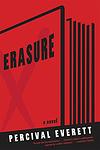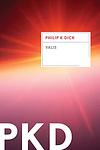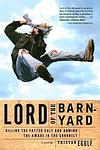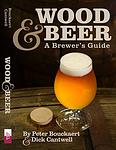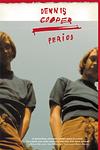The Greatest American "Fiction, Postmodern" Books Since 1980
Click to learn how this list is calculated.
This list represents a comprehensive and trusted collection of the greatest books. Developed through a specialized algorithm, it brings together 291 'best of' book lists to form a definitive guide to the world's most acclaimed books. For those interested in how these books are chosen, additional details can be found on the rankings page.
Genres
Postmodernism is a literary movement that emerged in the mid-20th century, characterized by a rejection of traditional narrative structures and a focus on self-reflexivity and intertextuality. Postmodern literature often features fragmented narratives, unreliable narrators, and a blurring of the lines between reality and fiction. It is a genre that challenges the notion of a single, objective truth and instead embraces the idea of multiple perspectives and interpretations. Postmodern literature is often seen as a response to the modernist movement that preceded it, and it continues to be a popular and influential category for contemporary writers.
Countries
Date Range
Reading Statistics
Click the button below to see how many of these books you've read!
Download
If you're interested in downloading this list as a CSV file for use in a spreadsheet application, you can easily do so by clicking the button below. Please note that to ensure a manageable file size and faster download, the CSV will include details for only the first 500 books.
Download-
1. The Amazing Adventures of Kavalier and Clay by Michael Chabon
The book follows the lives of two Jewish cousins, one a skilled escape artist and the other a talented artist, before, during, and after World War II. They create a popular comic book superhero, which brings them fame and fortune. However, their success is complicated by personal struggles, including the escape artist's attempts to rescue his family from Nazi-occupied Prague and the artist's struggle with his sexuality. The narrative explores themes of escapism, identity, and the golden age of comic books.
-
2. Infinite Jest by David Foster Wallace
This novel is a complex, multi-layered narrative that explores themes of addiction, recovery, and the human condition in a near-future society. The story is set in a tennis academy and a halfway house for recovering addicts, and it intertwines the lives of its numerous characters, including a gifted but troubled teenage tennis prodigy, his filmmaker father, and a group of Quebecois separatists. The book is known for its length, intricate plot, and extensive use of footnotes.
-
3. Underworld by Don DeLillo
"Underworld" is a sweeping narrative that spans from the 1950s to the end of the 20th century, exploring the interconnectedness of events and the impact of the Cold War on American society. The story revolves around a diverse group of characters, including a waste management executive, a graffiti artist, a nun, and a baseball collector, among others. These characters' lives intertwine in unexpected ways, illustrating the complex web of relationships and influences that shape our world. The novel is renowned for its vivid portrayal of historical events and its profound examination of themes such as memory, technology, and waste.
-
4. Middlesex by Jeffrey Eugenides
The book follows the life of Calliope Stephanides, a Greek-American hermaphrodite, who narrates her epic story starting from her grandparents' incestuous relationship in a small village in Asia Minor to her own self-discovery in 20th century America. The novel delves into themes of identity, gender, and the American dream, while also providing a detailed history of Detroit through the eyes of three generations of an immigrant family.
-
5. Rabbit at Rest by John Updike
The novel is a final look into the life of Harry "Rabbit" Angstrom, a former high-school basketball star, now in his mid-fifties, overweight and grappling with several health issues. Despite his success in business, his personal life is in shambles, with his wife addicted to alcohol and his son to drugs. Harry, struggling with his mortality, is trying to understand his past and make sense of his future, while dealing with the changing American society and the consequences of his own choices.
-
6. A Visit From The Goon Squad by Jennifer Egan
"A Visit from the Goon Squad" is an interconnected collection of stories about a group of characters whose lives intersect in the music industry. The narrative spans several decades, tracing the characters' journey from their youth to middle age. It explores themes of time, change, and the impact of technology on human relationships and the music industry. The novel is known for its experimental structure, including a chapter written as a PowerPoint presentation.
-
7. The New York Trilogy by Paul Auster
"The New York Trilogy" is a collection of three detective stories that explore the nature of identity and the search for meaning. The stories are set in New York City and feature various characters, including a detective, a writer, and a professor, who are all engaged in their own personal quests. These quests often involve elements of mystery, existentialism, and introspection, and the stories are interconnected in various ways, creating a complex and thought-provoking narrative.
-
8. The Hours by Michael Cunningham
The novel is a reimagining of Virginia Woolf's "Mrs. Dalloway" and follows three women from different time periods, each of whom are profoundly affected by Woolf's work. The narrative alternates between Virginia Woolf as she writes "Mrs. Dalloway" in 1923, a 1950s housewife who is reading the novel, and a contemporary woman who is essentially living the life of the titular character. These three storylines eventually converge in a powerful exploration of mental illness, sexuality, and the transcendent power of literature.
-
9. Sixty Stories by Donald Barthelme
"Sixty Stories" is a collection of short narratives that use unconventional, experimental structures to explore a range of themes. The book is known for its absurdist and postmodern style, and the stories often feature elements of parody, surrealism, and satire. The tales cover a wide array of topics, including art, literature, philosophy, and the human condition, all presented with a unique blend of humor, wit, and intellectual depth.
-
10. Lincoln in the Bardo by George Saunders
The novel is set in a graveyard over the course of a single night and is narrated by a dazzling chorus of voices. The story is centered around the death of President Lincoln's 11-year-old son Willie, who resides in the Bardo, a transitional state between life and rebirth in Tibetan tradition. As Willie interacts with the other spirits stuck in this realm, his father visits the crypt to mourn, causing a struggle among the ghosts over the boy's soul. The narrative explores themes of grief, the impermanence of life, and the unresolved issues that keep us from moving on.
-
11. Mason & Dixon by Thomas Pynchon
"Mason & Dixon" is a postmodern historical novel which follows the story of the 18th-century British astronomers and surveyors Charles Mason and Jeremiah Dixon, who are known for the Mason-Dixon line. The novel is written in a complex, digressive style, and it includes numerous sub-plots and a wide range of themes. It explores the scientific, philosophical, and sociopolitical issues of the Enlightenment era, as well as the personal lives and friendship of the two title characters.
-
12. Moon Palace by Paul Auster
"Moon Palace" tells the story of Marco Stanley Fogg, an orphaned young man in New York City who embarks on a journey of self-discovery. As he ventures into the American West and delves into his family's past, he encounters a series of adventures and misadventures that challenge his understanding of identity, love, and the very nature of reality. The novel is a complex and symbolic exploration of American mythology, weaving together themes of solitude, survival, and the pursuit of the American Dream.
-
13. World's End by T. C. Boyle
"World's End" is a multigenerational saga that takes place in upstate New York. The narrative alternates between the 17th century, where a Dutch estate is the setting for a brutal power struggle between a master and his rebellious servant, and the 1960s, where a young man struggles with his family's past and his own place in the world. The book explores themes of power, class, and the cyclical nature of history.
-
14. Wittgenstein's Mistress by David Markson
The novel is a stream-of-consciousness narrative from the perspective of a woman who believes she is the last human on earth. She shares her thoughts, memories, and experiences in a non-linear and often confusing manner. The narrative is filled with cultural and historical references, creating a haunting and profound exploration of loneliness, memory, and the human condition.
-
15. Cities of the Red Night: A Novel by William S. Burroughs
"Cities of the Red Night: A Novel" is a surreal, hallucinatory narrative that intertwines three storylines: an 18th-century pirate crew seeking utopia, a detective investigating a series of grotesque murders, and a pandemic causing spontaneous orgasms. The novel explores themes of homosexuality, anarchism, and the occult, using its disjointed narrative structure to challenge traditional understandings of time, space, and reality.
-
16. Mao II by Don DeLillo
"Mao II" is a novel that explores the life of a reclusive novelist who hasn't been seen in public for many years. The protagonist is drawn out of his seclusion when he becomes involved in an international crisis involving a hostage situation in Beirut. The book delves into themes of terrorism, mass culture, and the power of the written word, while examining the relationship between the individual artist and the collective society.
-
17. Operation Shylock by Philip Roth
In this intriguing novel, the protagonist, a famous writer, travels to Israel to cover the trial of a former Nazi war criminal. While there, he encounters a man who is his doppelgänger and who has been using his fame to promote a controversial political agenda, including the idea that Jews should abandon Israel and return to Europe. The narrative explores themes of identity, Jewish history, and the complexities of the Israeli-Palestinian conflict, all while blurring the line between fiction and reality.
-
18. Erasure by Percival Everett
This novel follows a successful African-American academic and author who, frustrated by the publishing industry's expectations and stereotypes around black literature, pens a satirical novel under a pseudonym. The novel becomes a huge success, forcing him to grapple with the unexpected consequences of his critique on the industry. He is also dealing with personal issues, including the disappearance of his sister and his mother's declining health. It's a complex exploration of identity, race, and the literary world.
-
19. VALIS by Philip K. Dick
The novel follows a mentally unstable man who begins to experience visions after being hit by a mysterious pink light. Convinced the light is a divine entity named VALIS, he and his friends embark on a quest to understand and communicate with it. As they delve into philosophy, religion, and science, the boundaries between reality and delusion begin to blur, leaving both the characters and the reader questioning the nature of existence.
-
20. The Anatomy Lesson by Philip Roth
The book centers on a once-successful writer who, plagued by chronic pain and unable to continue his literary work, experiences a profound identity crisis. As he grapples with his physical agony and the disintegration of his personal life, he embarks on a desperate quest for a cure and a new sense of purpose. This leads him to consider a drastic career change, which takes him on a darkly comic journey through the medical community and his own tortured psyche. The narrative delves into themes of mortality, the meaning of suffering, and the search for redemption in the face of overwhelming despair.
-
21. Lord Of The Barnyard by Tristan Egolf
The book is a darkly comedic and sprawling tale of a rural American outcast, whose life is marked by relentless misfortune and societal marginalization. The protagonist, with an extraordinary talent for animal husbandry, finds himself in constant conflict with the small-minded townsfolk and corrupt officials of his Midwestern community. His journey is one of epic struggle against adversity and the pettiness of small-town politics, culminating in a dramatic and chaotic rebellion that upends the social order of his world. The narrative weaves a rich tapestry of rural life, exploring themes of revenge, social injustice, and the quest for personal redemption.
-
22. Frisk by Dennis Cooper
The novel explores the darker side of human desires through the eyes of its protagonist, who delves into his disturbing fantasies of violence and sexual aggression. As he recounts his experiences and fantasies in letters to a friend, the narrative blurs the lines between reality and imagination, challenging the reader's perceptions of morality and the limits of human behavior. Set against a backdrop of underground scenes, the book is a provocative exploration of obsession, the nature of evil, and the allure of transgression.
-
23. City of Glass by Paul Auster
A struggling author becomes entangled in a complex mystery when he receives a wrong-number call asking for a private detective. After impulsively deciding to take on the role, he is hired to protect a man from his mentally unstable father who has recently been released from prison. As he delves deeper into the case, the lines between fiction and reality blur, leading him on a metaphysical exploration of identity and purpose.
-
24. Guide by Dennis Cooper
"Guide" is a provocative and unsettling novel that delves into the darker aspects of human desire and the underground culture of Los Angeles. The narrative follows a young man named Larry, who navigates through a series of intense and often disturbing encounters with various people in his life, including friends and strangers. The book explores themes of obsession, violence, and the search for identity, all set against the backdrop of a gritty urban landscape. With its stark, minimalist prose and shocking plot twists, the novel offers a raw and unflinching look at the complexities of human relationships and the quest for meaning in a seemingly indifferent world.
-
25. Period by Dennis Cooper
"Period" is the final installment in a five-part series that delves into the dark and often disturbing experiences of a group of teenagers. The narrative is fragmented and experimental, exploring themes of obsession, violence, and desire through a disjointed and surreal lens. The protagonist, along with his friends, navigates a chaotic world where reality and fantasy blur, leading to a climax that is both shocking and ambiguous. The novel challenges traditional storytelling with its unique structure and provocative content, leaving a lasting impact on the reader.
Reading Statistics
Click the button below to see how many of these books you've read!
Download
If you're interested in downloading this list as a CSV file for use in a spreadsheet application, you can easily do so by clicking the button below. Please note that to ensure a manageable file size and faster download, the CSV will include details for only the first 500 books.
Download


